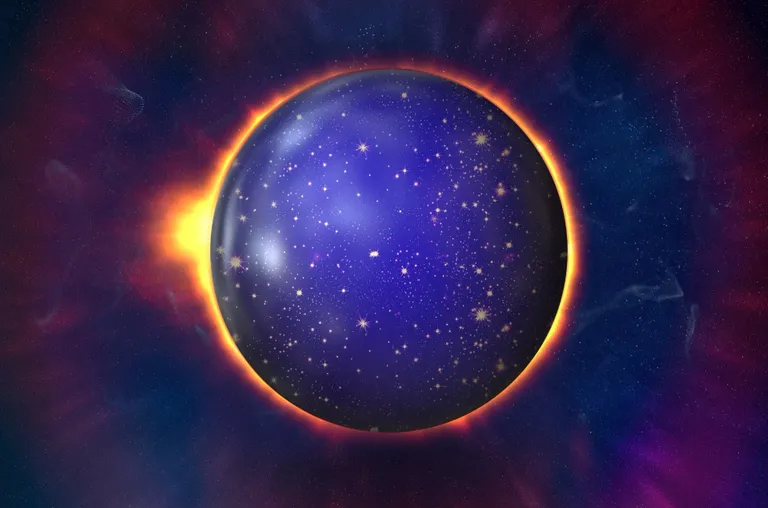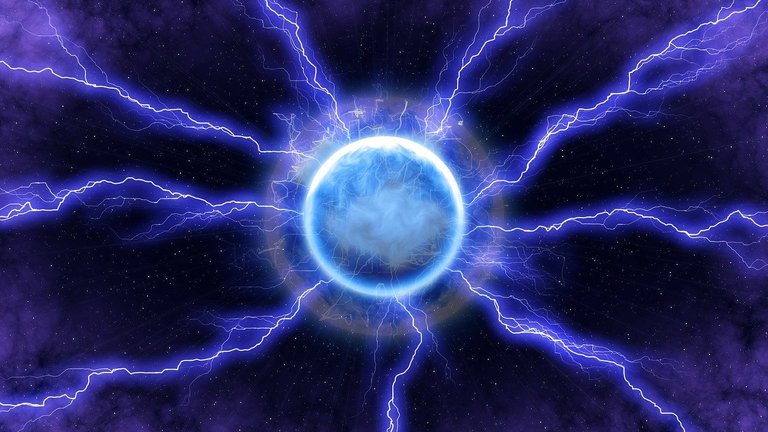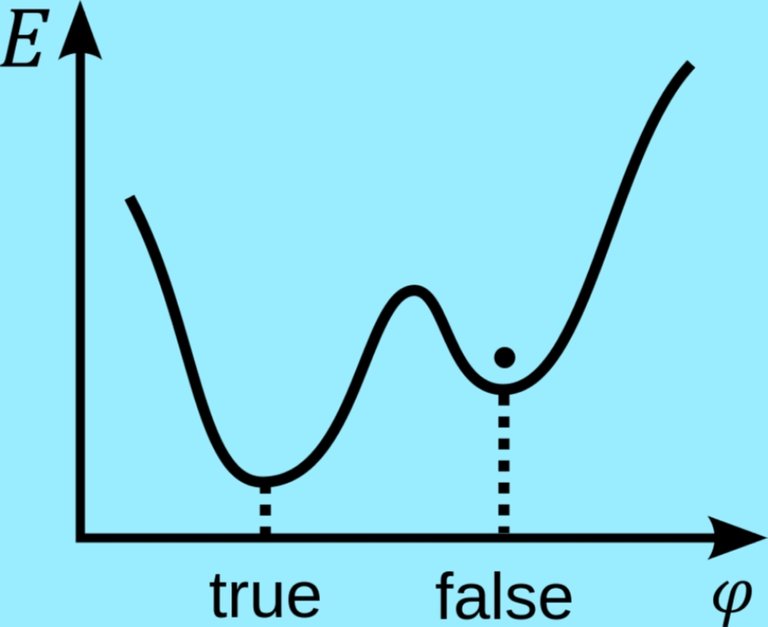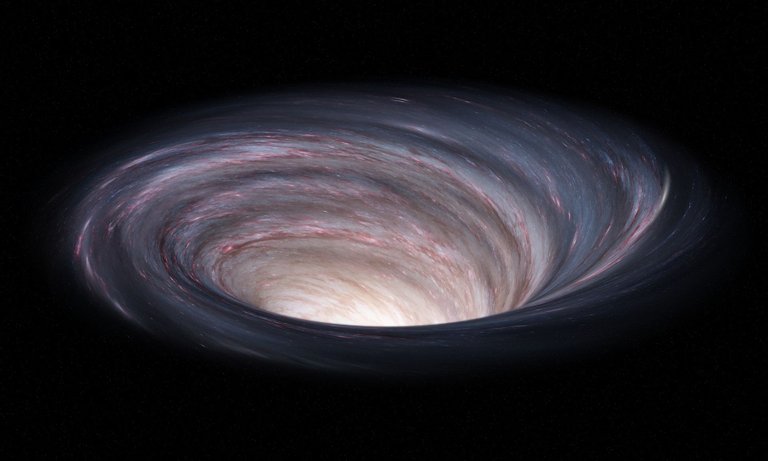While some people dream of making babies, some others dream of making baby universes.
The former endeavour may sound easy, as we know a lot about it, and has been done already by many. But the latter at a first glance might seem impossible to do.
Where would we take all the "stuff" from to make a new universe if we don't take it from the old universe?
Well, you wouldn't need a whole bunch of "stuff" to make a new universe as you might think.

According to Albert Einstein and his famous equation (E = mc2) which reveals that mass is really just a type of energy. And more importantly, his Theory of Relativity which tells us that space is dynamic. Space can bend or curve, and space can expand.
It changes with time! And space changing with time, means the energy is not conserved.
Yes, that's true. Unlike what you might have heard alot about the law of conservation of energy, it isn't entirely true when taking the cosmic timescales into account.
The Cosmic Microwave Background (CMB) for example, is light that has been around since the universe was young. Back then it was so energetic, but ever since it has been travelling for a long time through an expanding space, it got red shifted so much into a low energy light. The CMB has lost energy over time. Energy that hasn't gone anywhere else, it just gone!
An opposite example about the non-conservation of energy is Dark Energy which can go by the name of the cosmological constant. The cosmological constant is the reason why the expansion of our universe gets faster and faster over time. It's an energy-density, which is energy per unit volume, and it is constant as the name suggests (cosmological constant).
If the energy per volume is constant and the space increases over time, that means the volume increases, then the total energy increases with the volume. Which means, in an expanding universe, you can get a lot of energy out of nothing, if you can just manage to expand space rapidly enough.
As crazy as that may sound, that's really how it works in Einstein's theory of General Relativity.


Now, since that is out of the way, let's try to utilise the dark force for making a baby universe! 👶
We don't need a lot of matter, but to make a baby universe that expands, we just have to create conditions similar to those that created the universe that we live in. Simple enough, with a minor problem, however, which is that no one really knows how our universe was created in the first place.
There are plenty of different theories for that, but none of them has observational support so far.
However, one of those theories is called Eternal Inflation which has become very popular among astrophysicists. You can read a related post about it in this previous article of mine if you want to understand the idea behind it and how our universe might be one bubble of many others.
While we don't know for sure if it's right, it could be right.
In short, according to Eternal Inflation, our universe is created from the decay of a false vacuum. [1]

To get an idea about what a false vacuum is, I'll cover briefly what a true vacuum could mean first.
While a True Vacuum is a vacuum in a state of minimal energy. You can't get any energy out of it and it's stable. It is stable because it is at a global minimum of energy. And because it already has minimal energy, it can't do anything and we can't do anything with it. [1]

As an analogy to those states, if you throw a piece of sticky dough or a wet tea bag onto a wall, for example, it will briefly stick to that wall for a moment, but then it will fall down. That moment when it was sticking to the wall is somewhat similar to a false vacuum state. Unstable, and it will eventually decay into the true vacuum state (falling down to the ground and making a mess in this case).
Another example would be, imagine you have water trapped in some water tower. While the water sits there, contained within the walls of said water tower, not moving, and seemingly very stable. It would be similar to being in a "false vacuum" state like that, because if/when the walls of that water tower fail and burst, the contained water would come down to a more stable state (A true vacuum).


How is that related to making a baby universe? 👶
Consider we have a lot of false vacuum. Within that false vacuum there's a patch that decays into a true vacuum through a process called bubble nucleation. [2] The true vacuum has a lower energy, but it can have higher pressure. And if it has higher pressure it will expand.
That's how our universe could have started, and in principle we can recreate this situation in the laboratory.
We just have to create this false vacuum state, then part of it will decay into a true vacuum, and if the conditions are right (the difference in energy between the true and false vacuums, and it overcomes an energy barrier), that true vacuum will expand rapidly. And while it expands it will create its own space, making a bubble that doesn't grow into our universe.
The bubble must overcome an energy barrier to be able to nucleate. In other words, the creation of this universe only works if you have enough energy/mass in that original blob of false vacuum. [2]
How much energy/mass do we need?
Well, it depends on some parameters of the model which we don't know for sure. But in a very optimistic case, we would need about 10 kilograms. [3]
No one really has any idea how to make 10 kilograms of false vacuum. While 10 kilograms might not sound that much to us, for particle physics that's an enormous lot! The mass equivalent that currently even the biggest particle collider (the large hadron collider) works with, is about 10-20 grams only.
Maybe if we collide big atom nuclei instead of protons, we might be able to bring this up by some orders of magnitude, but 10 kilograms is not something that high energy physicists will be working with in the near future, certainly not within our lifetime.

Sorry to disappoint you, but it seems like no one will create a new universe any time soon. Even though in principle, we could do it theoretically if the whole false vacuum thing is correct and all.
Another disappointing thing is, we can't do much with those baby universes, as they wouldn't stay connected to their mom-universe for so long. Their connection would be like a wormhole that becomes unstable very quickly, pinching off within a fraction of a second. So, maybe we would be giving birth to such baby universes, kick starting their growth right before Pooof, they're gone!
From the outside they would pretty much look like small blackholes. And this in fact could be happening all the time without anyone doing anything.
We don't really understand the quantum properties of space, so, it is believed that space makes a lot of quantum fluctuations. These quantum fluctuations happen at distances so short that we can't see them. But it could be that sometimes they create one of these baby universes.

● Thank you for reading ●
● •

© 2022 @yaziris.




